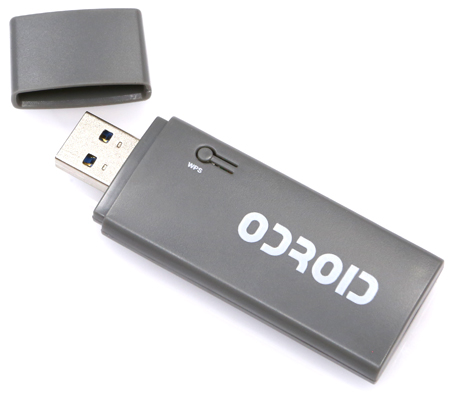Search the Community
Showing results for tags 'odroidxu4'.
-
yo guys, not sure how to fix this one, so i keep getting an adittional IP on my ethernet interface while i assigned it to static... tried to assign static conf with the armbian-config thing and by editing the /etc/network file. my dhcp is the stock ISP router network. never had this problem before, even when using other images from diferent distros. also sudo armbianmonitor -u gives me this error System diagnosis information will now be uploaded to /usr/bin/armbianmonitor: line 859: [: -gt: unary operator expected
-
Hello, my OMV installation on Odroid HC1 is currently at kernel 4.14.111 which is a bit outdated now. Looking at the build config [1], the kernel is fetched from hardkernel [2] which is currently at 4.14.127. What needs to happen to bring the kernel up-to-date? I have been doing packaging for Fedora for quite a while now so I am happy to help if needed. [1] https://github.com/armbian/build/blob/master/config/sources/odroidxu4.conf [2] https://github.com/hardkernel/linux/tree/odroidxu4-4.14.y
-
Hi Armbian Users I'm french, so excuse my poor english I'm having hard times installing Ubiquiti Unifi Controller on Armbian (running on a XU4) Armbian version : Armbian_5.59_Odroidxu4_Debian_stretch_next_4.14.66 I followed different tutorial, but no luck with those no brain tutorial. I must be retarded MongoDB is giving me a hard time, broken dependencies and so on. I understood that some managed to do it with Armbian based on Ubuntu. No luck eitheir for me. I did add the mongodb repository for 3.6 version, which support arm64 architecture. Apt never gave me the ability to install the mongodb-org package and dependencies for this package. A few links : https://github.com/aryonp/unifi/blob/master/install_unifi_odroid_xu4.sh https://docs.mongodb.com/manual/tutorial/install-mongodb-on-ubuntu/ (followed the ubuntu 16.04 tutorial) https://forum.odroid.com/viewtopic.php?t=22850 https://help.ubnt.com/hc/en-us/articles/220066768-UniFi-How-to-Install-Update-via-APT-on-Debian-or-Ubuntu I could have left that here, but no.. My armbian.list : deb http://apt.armbian.com stretch main stretch-utils stretch-desktop # deb http://repo.mongodb.org/apt/debian stretch/mongodb-org/4.0 main deb [arch=amd64,arm64] http://repo.mongodb.org/apt/ubuntu xenial/mongodb-org/3.4 multiverse # deb [arch=amd64,arm64] https://repo.mongodb.org/apt/ubuntu xenial/mongodb-org/3.6 multiverse deb http://mirrordirector.raspbian.org/raspbian stretch main contrib non-free rpi The few commands that goes with it : apt-add-repository ppa:webupd8team/java apt-key adv --keyserver hkp://keyserver.ubuntu.com:80 --recv-keys EEA14886 wget http://mirrordirector.raspbian.org/raspbian.public.key apt-key add raspbian.public.key sudo wget -O /etc/apt/trusted.gpg.d/unifi-repo.gpg https://dl.ubnt.com/unifi/unifi-repo.gpg apt update apt install unifi apt install oracle-java8-installer oracle-java8-set-default oracle-java8-unlimited-jce-policy systemctl enable unifi systemctl disable mongodb systemctl stop mongodb /etc/init.d/unifi start I end up with a Unifi Controller 5.8.30 working on Armbian (Debian), but... MongoDB is in version 2.4 and comes from raspbian repository ? Any thought on this ? Should I go an other way ? Thank you
-
Hello, I just ran a apt-update Sunday on a project and afterwards the XU only have Black screen with blinking _ in the corner, not connecting to LAN, no ssh, etc; red led is on, blue led blinking, no new logs in /var/log. Google' the issue, and several posts points to the /boot dir - however comparing with a know good SD card, I can't see much difference in this directory - other forum post points that a /dev mount point should be changed (but not to what) I can mount the broken SD card and have the following info; /etc/armbian.txt Title: Armbian 5.73 Odroidxu4 Ubuntu bionic next Kernel: Linux 4.14.94 Build date: 28.01.2019 /etc/armbian-release VERSION=5.73 I does seems to be very like below mention issue - however no applicable fix was provided - any assistance in how to unbrick the XU would be most appreciated (beside the obvious start over )
-
Hello, I had succeeded install last version of Armbian on Odroid XU4. I have WiFi USB dongle Realtek RTL8812AU chipset (ID = 0bda:8812) I see it $ lsusb Bus 003 Device 003: ID 0bda:8812 Realtek Semiconductor Corp. RTL8812AU 802.11a/b/g/n/ac WLAN Adapter $ dmesg | grep -i usb [ 9.630704] [c5] RTL871X: rtl8812au v4.2.5_10143.20140103_ASUS [ 9.887562] [c5] usbcore: registered new interface driver rtl8812au [18812.680134] [c2] RTL871X: nolinked power save leave but no Wifi interface Could anyone please help solve it
-
I just got a new XU4 and I tried to run both the official ubuntu 18.04 image with linux 4.14 and the armbian stretch 4.14 image (both minimal). I can hear a constant electrical squeaky noise (similar to noise from certain power supplies, usb chargers, etc) coming from the XU4 when running Armbian. The same noise is not present in the Ubuntu image. This occurs immediately after first boot (no additional configuration) and is constantly there. This is especially noticeable when the fan is off. Has anyone experienced this before?
-
Hello. First of all, thanks for your work and images working for my board :) I am working on S912 game board (board is used for an arcade game hardware) and would like to install gpu drivers. My issue is I don't find any documentation about from official website (ARM) I also wanted to use Panfrost but no documentation exist for installation :( I visited many site and Learn a little about Deb package and dkms package. Now I have a few questions about Can I install deb without dkms or must I install also dkms? How I can install gpu drivers if files like make don't exist on official deb package and cmake command not working Official provider for Midgard drivers https://developer.arm.com/products/software/mali-drivers/midgard-kernel Hope someone can help with this request and thank you for your time :)
-
Hi, I'm using Odroid HC1 for quite a long time and I've observed much degradation on SMB/NFS speed when making upgrades to the board. I'm not sure why? Maybe I'll find some idea what it can be. Previously the board was working with speeds >100MB/s when reading from it on Windows (smb) or Linux (nfs) now max speeds on the same configuration are ~40 MB/s. That's way too slow. I don't see any process to hang on pc, while copying using smb the samba process is using not so big amount of CPU on big cores from what I see. I've grabbed armbianmonitor output so you can check it also: http://ix.io/1zrL Currently I'm working on: 4.14.87-odroidxu4 Thanks, Marcin
-
Hi all! I am running a nextcloud server on an odroid HC2 and a 4 TB WD red HDD. So far, so good (thanks again @Igor for the quick help with the kernel downgrade!). And since I have bought the sbc recently, I do not seem to have the older firmware version with the HDD "emergency power down" bug, i.e. I haven't heard clacking sound from the HC2. Today, I set HDD spindown to 1 hour via hdparm (wd red does not support apm) because the HDD would spin down after about three minutes on its own. The HDD does not seem to apply these settings, so I installed smartmontools to check the HDD in general. Only to find that: smartctl -a /dev/sdb1 gives this: === START OF INFORMATION SECTION === Vendor: JMicron Product: Revision: 3101 Compliance: SPC-4 User Capacity: 4,000,787,030,016 bytes [4.00 TB] Logical block size: 512 bytes Physical block size: 4096 bytes LU is fully provisioned Logical Unit id: 0x3042000000000132 Serial number: DB00000000013B Device type: disk Local Time is: Tue Jan 29 11:03:47 2019 UTC SMART support is: Unavailable - device lacks SMART capability. To seems, it seems the JMicron USB-SATA Bridge prohibits armbian from seeing the actual HDD. Any way to fix this? Thanks!
-
The Armbian htop fork doesn’t show the cores frequencies. Is this a known problem? The frequencies are available like on any other computer in the sysfs entries (cpufreq driver).
-
Hi! recently bought a HC2 from hardkernel to migrate my nextcloud from a raspberry pi 3b. HDD is a WD red 4 TB. armbian stretch with the 4.19 kernel, downloaded from armbian.com (Armbian_5.69_Odroidxu4_Debian_stretch_next_4.19.14). My problem: after boot (sudo reboot now or sudo shutdown -r), no possibility to login, i.e. angryip scanner doesn't show the hc2, putty times out when trying to connect. All LEDs are lit or pulsate respectively. I have to physically disconnect the power supply and reboot, then I can easily login. This is probably not very healthy for the hdd (or the sd card..., although with the ro option and zram, not much is being written to the boot section anyway, right?) I speculated that the hc2 has a problem with the 4tb hdd when booting and added the nofail option to /etc/fstab, but this doesn't do the trick. Any help is greatly appreciated. I really like the hc2 formfactor and after having used nextcloud on the raspberry pi for 12 months now, I'd like to upgrade to a more powerful board, but this problem seems like a dealbreaker if I can't fix it. EDIT: I corrected the used image, I actually had the 4.19 installed!
-
I needed to downgrade from 4.19 back to 4.14 so I wanted to use armbian-config/system/other. It gave me an empty list. To fix that, in /usr/lib/armbian-config/functions.sh I needed to change the apt-cache command as follows: apt-cache show linux-image-next-odroidxu4 | grep -E "Package:|version:|Version:" | sed -n -e 's/^.*: //p' | sed 's/\.$//g' I added "-next-" That gave me a list, finally. Then the next issue: apt -s -y --allow-downgrades --no-install-recommends install linux-image-next-odroidxu4=5.60 linux-dtb-next-odroidxu4=5.60 failed with: E: Command line option --allow-downgrades is not understood I needed to remove the "--allow-downgrades", no longer necessary, seemingly. Finally, the aptitude remove command also needed to be given the "-next-": aptitude remove ~nlinux-image-next-*${LINUXFAMILY} --quiet=100 -y >> /var/log/upgrade.log 2>&1 Then the process worked perfectly and after reboot, the downgrade became active.
-
Odroid XU4 with Cloudshell2 Coming from 4.14.69, upgraded to 4.19.14 The fbtft_device module for the Cloudshell-LCD now reports: fbtft_device: display not supported: 'hktft9340' And yes, the source for fbtft_device seems to no longer contain hktft9340. I will ask in the Hardkernel Forum - this is just for info here. Question: When I use armbian-config to switch to an earlier package, I get a nice list, I select one and say ok, but after reboot nothing has changed. Is there something I could be missing in order to make this switch work? Never tried it before - I was hoping this would help me temporarily.
-
Hello, I set up an Odroid-HC1 running Armbian which works fine so far. But today I recognized htop only shows 8 CPUs of type .LITTLE running at a max of 1300Mhz while 4 of them were shown as .BIG CPUs with higher frequency before. The output of cat /proc/cpuinfo is: processor : 0 model name : ARMv7 Processor rev 3 (v7l) BogoMIPS : 36.00 Features : half thumb fastmult vfp edsp neon vfpv3 tls vfpv4 idiva idivt vfpd32 lpae CPU implementer : 0x41 CPU architecture: 7 CPU variant : 0x0 CPU part : 0xc07 CPU revision : 3 processor : 1 model name : ARMv7 Processor rev 3 (v7l) BogoMIPS : 36.00 Features : half thumb fastmult vfp edsp neon vfpv3 tls vfpv4 idiva idivt vfpd32 lpae CPU implementer : 0x41 CPU architecture: 7 CPU variant : 0x0 CPU part : 0xc07 CPU revision : 3 processor : 2 model name : ARMv7 Processor rev 3 (v7l) BogoMIPS : 36.00 Features : half thumb fastmult vfp edsp neon vfpv3 tls vfpv4 idiva idivt vfpd32 lpae CPU implementer : 0x41 CPU architecture: 7 CPU variant : 0x0 CPU part : 0xc07 CPU revision : 3 processor : 3 model name : ARMv7 Processor rev 3 (v7l) BogoMIPS : 36.00 Features : half thumb fastmult vfp edsp neon vfpv3 tls vfpv4 idiva idivt vfpd32 lpae CPU implementer : 0x41 CPU architecture: 7 CPU variant : 0x0 CPU part : 0xc07 CPU revision : 3 processor : 4 model name : ARMv7 Processor rev 3 (v7l) BogoMIPS : 36.00 Features : half thumb fastmult vfp edsp neon vfpv3 tls vfpv4 idiva idivt vfpd32 lpae CPU implementer : 0x41 CPU architecture: 7 CPU variant : 0x2 CPU part : 0xc0f CPU revision : 3 processor : 5 model name : ARMv7 Processor rev 3 (v7l) BogoMIPS : 36.00 Features : half thumb fastmult vfp edsp neon vfpv3 tls vfpv4 idiva idivt vfpd32 lpae CPU implementer : 0x41 CPU architecture: 7 CPU variant : 0x2 CPU part : 0xc0f CPU revision : 3 processor : 6 model name : ARMv7 Processor rev 3 (v7l) BogoMIPS : 36.00 Features : half thumb fastmult vfp edsp neon vfpv3 tls vfpv4 idiva idivt vfpd32 lpae CPU implementer : 0x41 CPU architecture: 7 CPU variant : 0x2 CPU part : 0xc0f CPU revision : 3 processor : 7 model name : ARMv7 Processor rev 3 (v7l) BogoMIPS : 36.00 Features : half thumb fastmult vfp edsp neon vfpv3 tls vfpv4 idiva idivt vfpd32 lpae CPU implementer : 0x41 CPU architecture: 7 CPU variant : 0x2 CPU part : 0xc0f CPU revision : 3 Hardware : SAMSUNG EXYNOS (Flattened Device Tree) Revision : 0000 Serial : 0000000000000000 Any idea on how to make the system detect the CPU cores correctly? Update: Kernel version is 4.19.5-odroidxu4 #5.67 SMP PREEMPT Fri Nov 30 03:15:28 UTC 2018 armv7l GNU/Linux Update: armbianmonitor shows the correct CPU information: ### Current system health: Time big.LITTLE load %cpu %sys %usr %nice %io %irq CPU C.St. 00:13:18: 1800/ 600MHz 0.06 1% 0% 0% 0% 0% 0% 39.0°C 0/11 00:13:19: 1800/ 600MHz 0.06 4% 3% 0% 0% 0% 0% 38.0°C 0/11 00:13:19: 1800/ 600MHz 0.06 3% 2% 0% 0% 0% 0% 37.0°C 0/11 00:13:20: 600/ 600MHz 0.06 4% 4% 0% 0% 0% 0% 36.0°C 0/11 00:13:20: 600/ 600MHz 0.06 5% 4% 0% 0% 0% 0% 36.0°C 0/11 00:13:24: 1800/1300MHz 0.13 1% 0% 0% 0% 0% 0% 49.0°C 0/11 00:13:24: 1800/1300MHz 0.13 3% 2% 0% 0% 0% 0% 44.0°C 0/11 00:13:24: 1800/1300MHz 0.13 3% 2% 0% 0% 0% 0% 42.0°C 0/11 00:13:25: 1800/1300MHz 0.13 2% 2% 0% 0% 0% 0% 41.0°C 0/11 00:13:25: 1800/1300MHz 0.13 3% 2% 0% 0% 0% 0% 41.0°C 0/11 Thanks in advance, Letterus
-
Hey Can anyone confirm the problem with under-clocking in Odroid HC1/HC2/XU4 with Kernel 4.19.14 / Armbian 5.70? I could always reach 2000/1500Mhz without a problem. Currently, after the last Armbian update from 5.60 to 5.70, I noticed a strange behavior that Odroid does not want to reach full clocks. With cpufrequtils min 600 max 2000 and "performance" and clocks do not want to go higher than 1800/1300Mhz temperature cpu 45.0 ° C. No changes just last updates nothing more was touched. After returning to 5.60 and 4.14.69 the CPU runs normally at 2000/1500 .... I also have the impression that HDD sometimes behaves strangely at 5.70 / 4.19.14 According to the @tkaiser suggestion.... -- John Stiles
-
Hi, my surveillance webcam stopped working after upgrade to 4.19.14. But only on my HC2. On my other H3-Deviceses, it's working well. System diagnosis information -> http://ix.io/1yko Linux 35708-HC2 4.19.14-odroidxu4 #5.70 SMP PREEMPT Sat Jan 12 18:34:04 CET 2019 armv7l GNU/Linux Error message: root@35708-HC2:~# sudo mjpg_streamer -i "/usr/local/lib/input_uvc.so -d /dev/video0 -n -r 800x600 -f 30" -o "/usr/local/lib/output_http.so -n -w /usr/local/www -p 8080" MJPG Streamer Version: svn rev: 3:172M i: Using V4L2 device.: /dev/video0 i: Desired Resolution: 800 x 600 i: Frames Per Second.: 30 i: Format............: MJPEG Error opening device /dev/video0: video capture not supported. Init v4L2 failed !! exit fatal i: init_VideoIn failed ...just to report. Markus
-
I’m relatively new to Armbian, have been running it with XU4 for couple of months. Otherwise working very well, but there’s occational (once a month) full system hang/crash or something. This is a remote server with constant load (video surveillance) and when it happens, all connectivity is of course lost and I think it can be only resolved locally with full power cycle. I’ve not yet tried to attach HDMI monitor when it’s in the crashed state, but will do it next time. Although not very optimistic if that works at all. There are nothing obvious in the logs, or it might be that I don’t know where to look. Are there any general advice what to do, how to figure this out? Any configs etc. to change? Should I have logs pushed to remote server via syslog with hope see something from there? Or install some kind of monitoring software?
-
I've just installed the default desktop image, flashed directly to my emmc using etcher. Everything seems to work ok, as far as I can tell. Using the date command, it has my local time as correct, but the clock in the taskbar or whatever its called at the top of the screen is about 6 hours ahead (gmt). How do I correct this? Also, how do I verify that video acceleration is functioning or not? How do I adjust the cpu freq gov and what is the default? I looked in the boot.ini file, but it says to set the environment variables in a file named /boot/armbianEnv.txt . This file doesnt exist, so I assume I'm just to touch it and then copy over the lines I want from boot.ini and then edit them? Thanks
-
Ok, so after PHP issues I started off with a fresh armbian install and via armbian-config I installed OMV 4. Install finished without any problems but if I copy stuff via smb the tranfer speed is really bad and I don't know why. On an old install with OMV 3 I used to get nice 100 mb/s. The cpu temp also used to be at like 80 °C during copy, now it looks like this: Following extra options are set in smb.conf: min receivefile size = 16384 write cache size = 524288 getwd cache = yes socket options = TCP_NODELAY IPTOS_LOWDELAY I also checked smbd app, it's running on a big core.... I get the feeling that not all the avaiable resources of my HC2 are used anymore. Can anyone help me here? The reason number 1 for choosing armbian + OMV were the introduced tweaks that got me NAS-like tranfer speeds... Other os' I tried all have equally bad tranfer speeds. I wish everyone reading this a Happy New Year 2019!
-
Can anyone help me convert an Orange Pi image to run on my new Odroid XU4 as I need it running on the older kernal ARMBIAN 5.31 stable Ubuntu 16.04.3 LTS 3.4.113-sun8i The newer Kernal has a few small issues that cause a problem for my setup.
-
W: Size of file /var/lib/apt/lists/apt.armbian.com_dists_jessie_jessie-utils_binary-armhf_Packages.gz is not what the server reported 5780 5784 W: Size of file /var/lib/apt/lists/httpredir.debian.org_debian_dists_jessie-backports_main_binary-armhf_Packages.gz is not what the server reported 1122303 1123712 Get this when first doing apt update after fresh install. HC1 Jesse. I assumed at first it was network error, but this is consistent. Have downloaded and checksummed successful. Assumed then it was the SD card, replaced and have now tried several. Power supply is solid. I believe the hardware and bandwidth / router are fine. Simply repeat apt update and everything appears to go well. Did it ignore the erroneous entry or get a proper one?? armbianmonitor -u output http://ix.io/19Nz
-
This is something I've just realized has been popping up for me for as long as I've been using armbian the past year or so with my ODROID. After a clean setup, I use armbian-config to edit the network settings (ethernet connection) to a static IP address, and everything works fine. I reboot the changes and go on my way. The problem comes after I reboot days/weeks later for kernel updates or if I lost power. The board turns on fine but refuses to show up on my network and therefore cannot SSH to the system. Looking through the SD card and checking the files shows that /etc/network/interfaces is devoid of any static IP changes made through the config, although it looks like correct information is shown under /etc/NetworkManager/system-connections/Wired\ Connection\ 1. The board light flashes a steady blue and seems to be functioning otherwise, but the logs don't really show anything after the reboot. I do have lines in /etc/fstab for filesystems that aren't present at boot, could the process be hanging on that? Is there even an easy way to debug this as it's not like I can plug in a monitor and see the boot messages? Wired Connection - NetworkManager connection file Auth log prior to reboot Syslog reboot
-
Hi, I received 2 same boards recently. One is working great, second has suffered from unexpected shutdowns. Rpimonitor has not recorded this high temperatures yet, maximum temperature recorded is not more than 90C. SoC has been utilized on 100% with ffmpeg video conversion and other tasks. I run these board on Jessie or Bionic system and have tested mainline stable and beta kernel. These board have got passive heatsink however I put 80x80 quiet slower fan on the top of heatsink, thermal compound is replaced for silver one without making problem solved.
-
Hello, playing around with the HC1 I noticed the lack of the nbd driver within this image. Because of the good documentation and the excellent build chain system I was able quickly to build a installation image solving my needs. My question: are there plans to add the settings necessary for nbd driver generation to the image build configuration ? Otherwise I would have to take care in case of armbian kernel updates. Thanks in advance, Joe62






